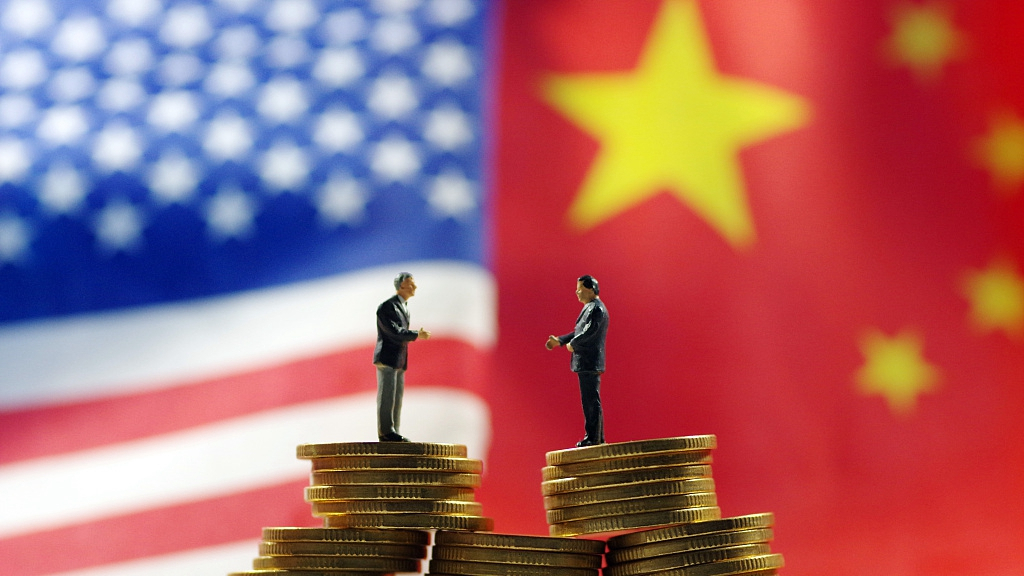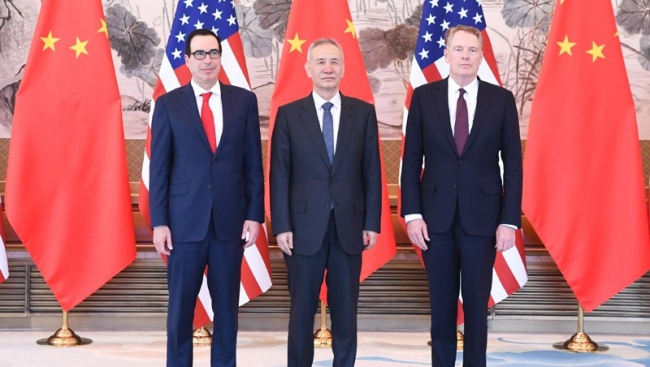
Opinion
22:53, 09-May-2019
China-U.S. trade talks enter a new normal
Updated
08:22, 10-May-2019

Editor's note: The following is an edited translation of a commentary from the Chinese-language "Commentaries on International Affairs" that was first published on China Plus on May 9.
China will take necessary countermeasures if the United States puts new tariffs on imports from China, according to an announcement from China's government on Wednesday. The announcement came two hours after the United States renewed its threat to raise the tariff on 200-billion-U.S.-dollar worth of goods from China from 10 to 25 percent on May 10.
This is not the first time Beijing has warned of countermeasures when faced with threats from Washington. And there's little sign that Beijing intends to kowtow to American threats.
Given what has happened since the White House triggered the trade conflict when it imposed heavy tariffs on imports from China early last year, we may have entered into a new normal in which talks are interspersed with sporadic escalations by Washington.

Vice Premier Liu He (C), China's chief negotiator in the China-U.S. trade talks, meets with U.S. Trade Representative Robert Lighthizer (R) and Treasury Secretary Steven Mnuchin during the 10th round of negotiations in Beijing, April 30-May 1, 2019. /Xinhua Photo
Vice Premier Liu He (C), China's chief negotiator in the China-U.S. trade talks, meets with U.S. Trade Representative Robert Lighthizer (R) and Treasury Secretary Steven Mnuchin during the 10th round of negotiations in Beijing, April 30-May 1, 2019. /Xinhua Photo
The new normal seems to have been acknowledged by China's negotiators, which is why Vice Premier Liu He, China's chief negotiator, decided to carry on despite the latest threat and head to Washington for the 11th round of talks on Thursday and Friday.
After the previous 10 rounds of negotiations, both sides have achieved substantive progress in areas such as government procurement, structural reforms, and the implementation mechanisms. This progress didn't come easily, and deserves fair treatment.
Tensions in China-U.S. trade relations have accumulated across a long period of time. Chinese negotiators have a clear understanding that there is no quick solution for these complex issues. China's decision to continue with the talks shows its respect for the rules of negotiation as well as the efforts and achievements made by the negotiators from both sides. By contrast, the United States seems impatient, and is willing to throw around threats right before the new round of talks is about to begin.
Although President Trump has been claiming that China foots the bill for the American tariffs on goods imported from China, this message has not been well received by all U.S. congressmen. "U.S. importers have paid the U.S. government over $16 billion in tariffs on imports from China," tweeted Republican Senator James Lankford. "This tax is not paid for by Chinese exporters, this is all paid by U.S. importers."
As it stands this dispute between China and the United States has not only hurt the interests of both countries, but also damaged global growth.
The International Monetary Fund has lowered its global growth forecast for 2019 and 2020, citing the trade tensions as a major reason for adjusting its projections downwards. And global stock markets have reacted with shock each time the China-U.S. trade talks have run into obstacles.
China has repeatedly voiced its reluctance to escalate the trade tensions, just as it has made clear its willingness to manage the dispute through cooperation and dialogue. It's now up to Washington to decide whether it wants to meet Beijing halfway and make a fair deal.
The latest threat by the United States looks like a last-minute attempt by Washington to exert pressure on Beijing in an attempt to force China into a deal. But it seems unlikely that China will bend in the face of the new threat. It has already withstood the tests of the past 15 months, and the strength of its position has been highlighted by the slew of positive economic data that has been released over the past few months.
(If you want to contribute and have specific expertise, please contact us at opinions@cgtn.com.)

SITEMAP
Copyright © 2018 CGTN. Beijing ICP prepared NO.16065310-3
Copyright © 2018 CGTN. Beijing ICP prepared NO.16065310-3